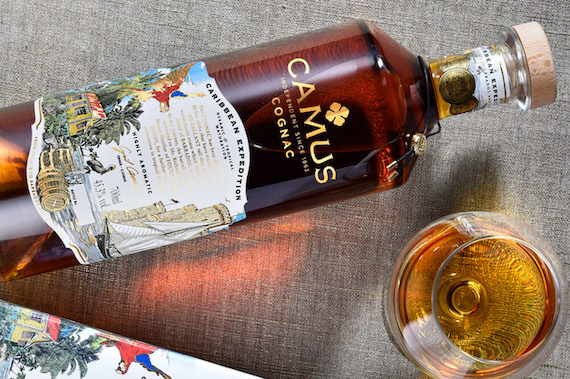ADVERTORIAL CONTENT
It was the only reliable means of transporting the French brandy to markets around the world and played a key role in the world’s trade. A side effect of these vast journeys however, was the change in character of the cognac which was caused by the rough seas and fluctuations in temperature. New flavours emerged from the cognac as it travelled the globe, becoming one of the greatest accidental side- effects of its time. However the replacement of barrels with more efficient glass bottles brought an end to this natural ageing process, until Camus decided to rekindle this ancient tradition with its Caribbean Expedition.
“What is distinctive with our approach is that we are not trying to do anything new,” says Cyril Camus, president of the House of Camus. “We are merely exploring the past to extract from it elements that may have been forgotten or sidelined, while they could actually contribute to making a more exceptional product if brought back into the production process in a modern way. We call this principle ‘The science of Traditions’.
“By using modern science to measure the impact of such environmental factors on the organoleptic profile of the product, we can identify sources of improvement in our day to day production, and thus take our cognac to a still higher level.”

In order to explore the opportunities guaranteed by oceanic maturation, Camus loaded 10 sealed casks of cognac in the fourth year of ageing onto a classic tall ship at the end of 2018. The traditional maritime vessel set sail from La Rochelle to Barbados in the Caribbean, a transatlantic route once taken by merchants hundreds of years ago.
The 45-day voyage across one of the world’s great oceans was expected to introduce new flavour profiles to the liquid as it had done in the past. The constant movement of the barrels and changes in atmospheric pressure on the ocean enhanced the rate of maturation by increasing the cognac’s contact time with the wood. The casks eventually arrived on the evening of January 10, 2019 in Bridgetown where they began the next leg of their journey. Having been filled in Cognac and sailed across the world the barrels were then left to mature for a further 12 months under the watchful eye of Richard Seale, master distiller of the iconic and prize-winning Foursquare Rum Distillery.
View this post on Instagram
“I do not know much about cognac ageing,” says Seale. “But I think broadly the biggest difference is the warmer and more humid climate in Barbados in contrast to Cognac. While it is possible to get humid cellars for cognac, you cannot get the combination of humidity and a hot climate that exists in Barbados.
“I think for everyone the most difficult part of ageing is patience. I was very pleased Camus wanted to spend an entire year in Barbados and not just rely on the ocean trip.”
After finishing its holiday in the Caribbean, the barrels were returned to France and bottled as the first cognac double-aged in oceanic and tropical conditions. The one-off experimental series has been limited to 4,500 bottles and is a fine testament to one of cognac’s greatest stories.
Master blenders across the world have spent years trying to prefect what Camus was doing hundreds of years ago - reaching innovative, balanced finishes through ageing. And now the pioneering producer has gone back in time to rekindle an ancient tradition and replicate it in a controlled environment. Camus has brought a traditional method back to life and combined it with tropical ageing - it really is The Science of Traditions.




